BY WALTER OPINDE
On this day, 1st July, 1893, an African-American civil rights activist, novelist, essayist, and journalist, Walter Francis White was born in Atlanta, Georgia. Walter led the National Association for the Advancement of Colored People (NAACP) for approximately a quarter of a century, from 1929 to 1955, after starting with the organization as an investigator in 1918. He directed a broad program of legal challenges to racial segregation and disfranchisement.
Walter White was one of the seven children (he had five sisters and one brother) of George White, a Post Office employee, and his wife Madeline Harrison White. He completed high school in 1912 and entered Atlanta University, from which he graduated in 1916. While an undergraduate, he had a variety of part-time jobs and was at one time a hotel porter. He later became an insurance salesman for the black-owned, Atlanta-based Standard Life Insurance Company. After graduation, White became a full-time clerk with that company. White was an active and energetic member of the Atlanta branch of the National Association for the Advancement of Colored People (N.A.A.C.P.), which he served as secretary. Through his work for that organization he became acquainted with James Weldon Johnson, then Field Secretary and National Organizer for the Association. It was on Johnson’s recommendation and at his urging that White consented to become one of the Associate Secretaries of the NAACP. He served in this capacity from 1918 to 1929. White married one of the Association’s office secretaries, Leah Gladys Powell, in 1922. During the twenties, White became famous for his first-hand investigations of lynching, which he conducted by posing as a white man. He also published two novels, Fire in the Flint (1924) and Flight (1926), and an exposé of lynching, Rope and Faggot, a Biography of Judge Lynch (1928).
When James Weldon Johnson left the N.A.A.C.P., Walter White was made acting Secretary. With Johnson’s final resignation, White succeeded to the permanent position in 1931. During his tenure as Secretary, from 1929 to 1955, White led the campaign against the confirmation of John J. Parker to the Supreme Court, directed the Association’s activities in the Scottsboro case, and directed activities designed to thwart communist influence in the organization. He also consolidated the powers of the Secretary by exercising strong personal control over the national staff. From 1943 to 1945, White served as a war correspondent for the New York Post. He visited most of the major war areas and, as a result of his experiences, wrote A Rising Wind (1945). Later he expanded his public writings by producing an editorial column for several newspapers, including the Chicago Defender. In 1948, he published his autobiography, A Man Called White.
Many members of the local branches and of the national staff felt that White exercised too much power, and there was an attempt to oust him. Even though he thwarted this attempt and retained the secretary position, the office was stripped of some of its power. During the last five years of his life, White increased those of his activities not related to the N.A.A.C.P. and the field of race relations. He became particularly interested in Haiti and the Caribbean and sometimes acted as an unofficial spokesman for the interests of that area. White was likewise active on behalf of India and interested himself in its economic and political development. He cultivated the friendship of “Nan” Pandit, Nehru’s sister, and made arrangements for Nehru to meet black leaders when he visited the United States. During the 1950’s, White was in a declining health as a result of a heart ailment. He died of a heart attack on 21st March, 1955.
Read more about Walter Francis White via:
http://www.harvardsquarelibrary.org/biographies/walter-francis-white-1943/
http://www.encyclopedia.com/people/social-sciences-and-law/social-reformers/walter-francis-white
https://www.biography.com/people/walter-white-9529708
http://www.georgiaencyclopedia.org/articles/history-archaeology/walter-white-1893-1955





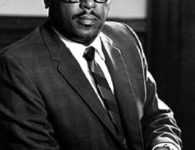





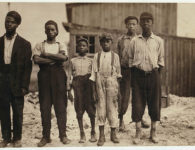




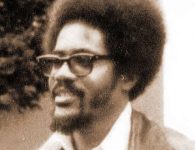

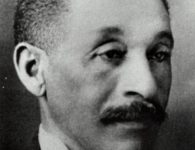
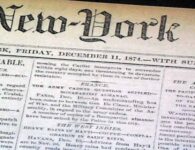

No comments